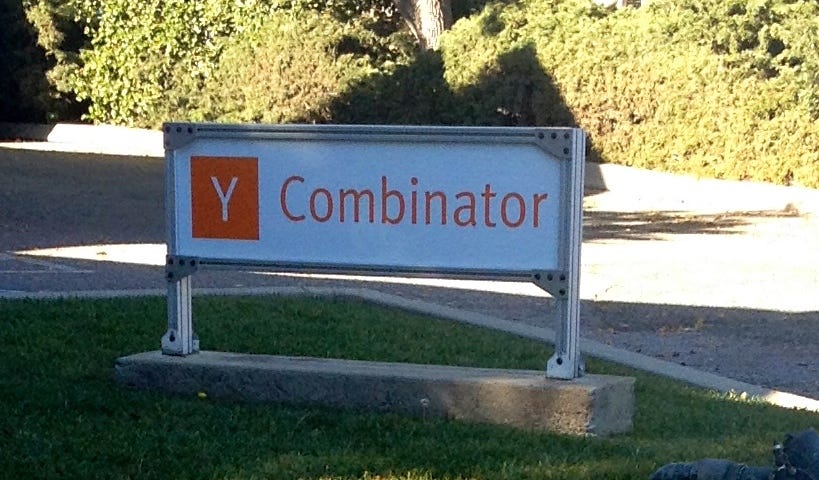
Henri and I applied to Y Combinator an embarrassing number of times, four to be precise. A recent study of successful entrepreneurs revealed that certain qualities defined them, one of which was the ability to manage rejection and failure. We hope that is the case because we have had our fair share of practice.
We have learned most through our failures, both about our business and ourselves; so, as YC is accepting new applications, I thought I would share our experience.
March 2013
Applied and rejected from YC.
April 2013
In our senior year of college, we met Sam Altman. Remarkably, Sam was the sole person on PG’s list of top 5 founders whom we did not know. He spoke wicked fast and we did our best to reciprocate (not a good idea).
Like every college student at the time, we pitched a photo-sharing application. It was fun but it wasn’t something that kept us up at night. It sounds cheesy but it’s true: you have to work on the thing that consumes you. It never stops and it is as awesome as it is scary. With the photo app, we just weren’t there.
As we were leaving, Sam asked if we considered working on something else. I answered, “No. This is us.”
Later, I thought of Dr. Venkman in Ghostbusters when they were zapped by a demon after replying “No” to the question of whether the Ghostbusters were gods. He said, “If someone ask you if you are a god, you say yes!” Maybe I could have said yes but in the long run it is more important to be honest than “correct.”
If a YC partner asks you anything, just shoot from the hip. Bullshitting won’t help you and they have a sixth sense for what is real. Trying to finesse them only means you don’t believe in yourself or your product.
After sending a follow up thank you email, Sam replied:
_____
Hey —
You guys were awesome. If you believe in the idea, you should definitely go for it.
Are you guys willing to consider other ideas, or are you really set on this one?
_____
That was an excruciatingly polite way of saying your idea may not be all you think it is. I am glad Sam asked again. Henri and I did a gut check. Liking your idea is different than being consumed by it.
Finally, we re-submitted an application with a concept strongly reminiscent of Shout. That meeting with Sam was the catalyst that led us to create the entity we consider an extension of ourselves. We were invited to interview, flew out to California the next day, and prepared our pitch on the plane.
It was the first of our three trips to 320 Pioneer Way. There are things you always remember. Flying to California was a lot better than flying home after a rejection.

In a mere 12 hours, a roomy, light-filled miracle of flight transformed into a drab, metallic torpedo that had absolutely no business being suspended in air.
First Interview:
We were interviewed by Jessica, PG, Trevor Blackwell, and Robert Morris. The conversation was a blur. They didn’t fully understand what we were pitching and, looking back on it, neither did we.
It would be easy to justify why we might not be accepted: no users, no revenue, and no product. We didn’t even have a demo.
Still, I checked my emails obsessively (“Please, no rejection email”) hoping that my phone would ring instead. It never did. PG’s rejection read as follows:
_____
I’m sorry to say we decided not to fund you. You seemed like energetic guys, but the idea is still so vague at this stage that it’s hard for us even to judge. Plus there is a lot of the “made up idea” about it. It seemed to us that if this happens it will be largely a delivery service that can get into buildings, which means it’s limited to campuses and even there not huge.
-pg
_____
To that point, everything had been a bit too easy although, at the time, we didn’t realize it. We met Sam and a few days later we were pitching a fresh idea with nothing behind it. Nothing. Other applicants had moved their families, quit cozy jobs, and made sacrifices we only understand now.
In retrospect, I am glad we were rejected because they were right. We weren’t ready.
Learnings Part 1:
On the plane ride home, we made three decisions.
We needed to be committed, not simply impassioned. If we were going to bring people on the journey with us, we had to do it without a net.
2. I would learn to code
YC asked, “Which of you are hackers?” I did not have the skill that mattered most. That had to change.
3. Come hell or high water we were going to get into YC
Our egos were bruised but that is not why we were so motivated. The partners were intrigued by people trying to do something challenging and by the power of determined individuals to convert mere neuronal activity into a tangible reality. We wanted to be a part of that but, more importantly, we wanted to be worthy of it.
September — November 2013
I learned to code and Henri taught himself iOS.
The ultimate goal of Shout is to solve peer-to-peer local commerce.
We were fascinated by marketplaces and networks, but we needed to learn. So, we hacked together an app that enabled people to buy and to sell their spot in a line. It was the ideal experiment to discover what strangers needed in order to trust one another and to engage in a real-time transaction.

We worked non-stop and built the first version in 2 months. Then, two-days before the YC application was due, we locked ourselves in Henri’s brother’s apartment and wrote our YC app (Don’t do this!).
We stayed up waiting for the email to see whether we would get an interview. We must have read that first line a hundred times.
___________________
Your application looks promising and we’d like to meet you in person. Please go here to read how interviews work and sign up for a slot:
[ Link ]
If you haven’t already read this
[ Link ]
we encourage you to, because it answers most of the questions applicants have had in the past…
See you in California!
___________________
Second Interview:
This time felt different. We had a demo and over 1k+ on our wait list.
We were interviewed by Geoff Ralston, Michael Seibel, Garry Tan, and Sam.
Everyone understood what we were building. There was little doubt it was a potentially powerful tool. The main question, which was asked by Garry, was, “Do you think this is a good beachhead?”
We soon discovered they did not think it was.
______
I’m sorry to say we decided not to fund you. We think you are both very talented and that you should continue to pursue this space and find a great opportunity. At this point what gives us pause is that we are not sure that you have found a scalable and defendable usecase. We all think with another 4–6 months of development you will learn a bunch and might be in a much better position to re-apply. We look forward to seeing you again.
Best,
Michael
______
This time, I thought they were wrong.
We headed back to the airport and had dinner outside our gate. It was a Friday night and we were eating quesadillas in an airport bar before heading back to NYC after being rejected from YC…again.
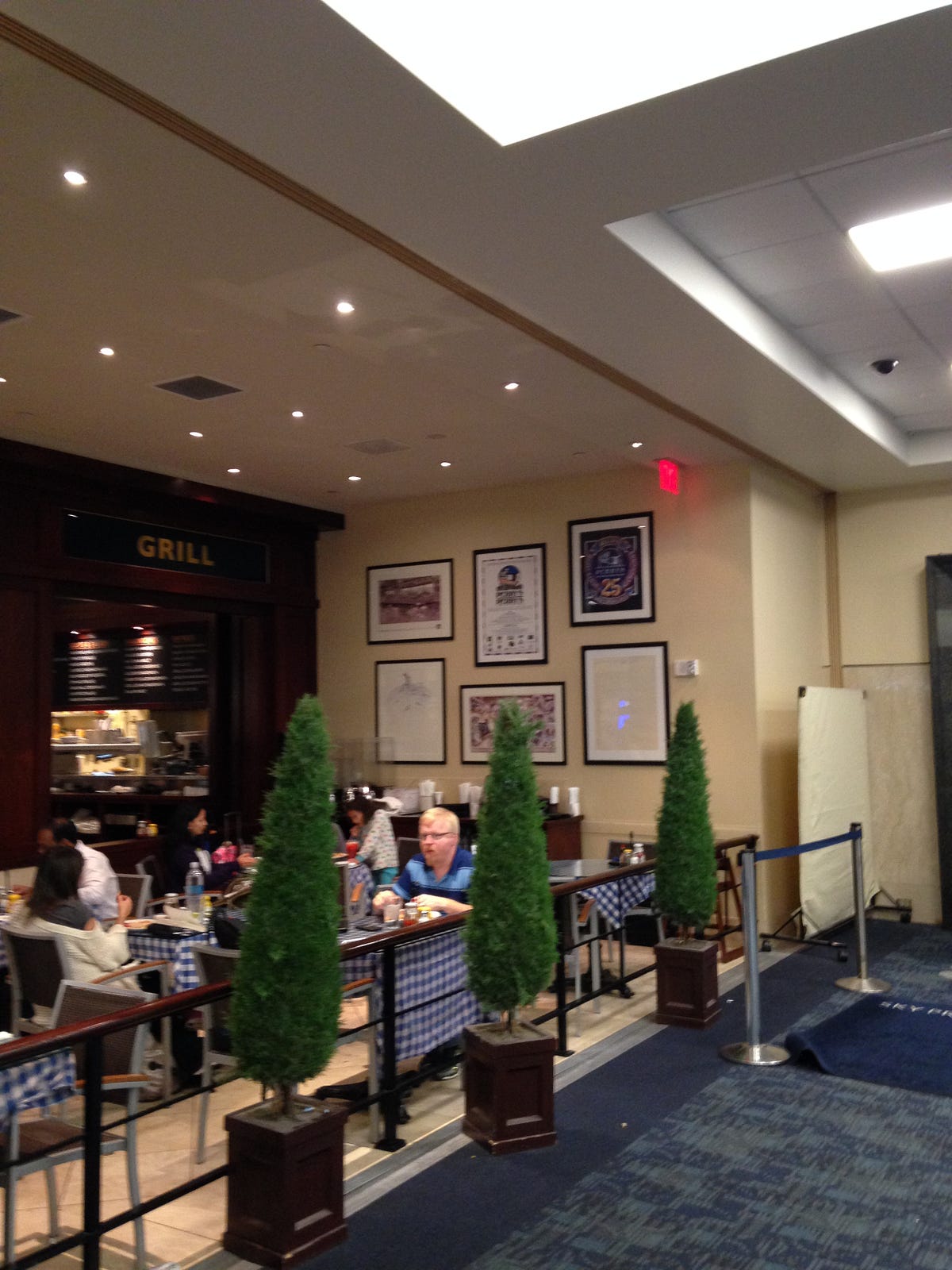
That was a shitty meal. We ended up having the same meal 6 months later, at the same table, and let me tell you, that quesadilla was freaking delicious.
Learnings Part 2:
We may love Shout too much
It was at that dinner that we questioned whether we were going about things the right way.
Oddly, in a moment of extreme doubt, I experienced absolute confidence. We questioned almost everything about our approach except our working together. This is the sine qua non.
November 2013 — March 2014
Before Henri and I became partners, we made one promise: whatever happened, we would not fail because we did not work hard enough.
We launched our beta, finally resolved to achieving success sans YC. Wes (our Michelangelo on the team) joined us on the journey. All we needed was users. Perhaps we were a bit naive but, sometimes, not knowing you shouldn’t be able to do something is a gift.
We hired part-time actors (they are articulate, good-looking, and have flexible schedules). Then we went outside restaurants that do not take reservations and put our names down at around 5:30 p.m. When 8:00 p.m. rolled around and people were told there was a 2 hour wait, we offered our table to them — if they requested the spot on the app. We had it down to a science.
We didn’t stop there.
People started asking for deliveries. I became a Postmate to learn about deliveries. In February, there were a few Shouters who wanted tickets to SNL. We slept on the street in 4 degree weather outside Rockefeller Center several times; we are still searching for feeling in our toes.
Nothing else mattered, including YC.
Application time came around and we thought about not applying. It seems a bit silly to say now (to us), but it is true.
Unlike previous applications, we completed it with a cavalier flair.
Third & Fourth Interview:
For this interview, we prepared less. We had lived our business for 8 months. We had users and data.
Our first interview was with Paul Buchheit, Jessica Livingston, Trevor Blackwell, and Dalton Caldwell.
It went well but we could have done better. As we walked out, Tara told us that we weren’t done and had another interview.
We took a long walk between interviews.
We thought about how rare it was in life to get a second chance immediately after the first. We went into that final interview guns blazing because we weren’t taking that plane home with any semblance of regret.
Now, I thought of ‘Red’ in Shawshank Redemption. After years of caring about being paroled, and being rejected, he no longer saw his freedom as dependent on others; only then was he released. So it was with our team. We were ready in the only way that mattered, and it was palpable.
Learnings Part 3:
If you love something, don’t give up.

YC could sense it. YC takes companies when they can help a company most, not when they can make it. That’s the difference. The third time we interviewed we knew, and so did they, that regardless of the outcome we were going to be just fine.
YC can help you run faster but they won’t give you legs.
Y Combinator
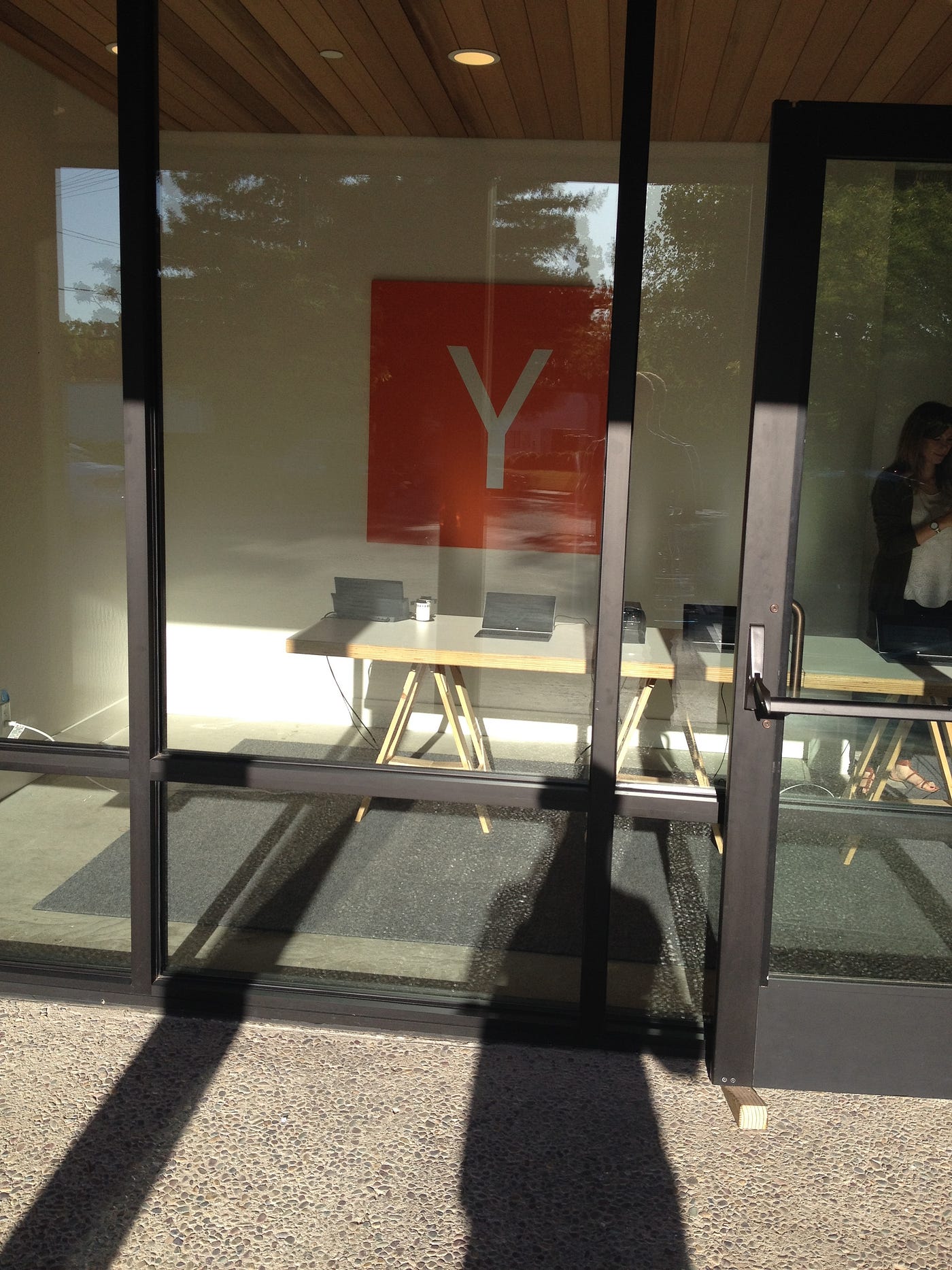
Prior to entering YC, we received endless advice.
Surprisingly, it was mostly negative. Many drew the analogy to YC as an institution that would take out a hose filled with trite advice and simply spray each startup. There is no shortage of YC critics and, prior to experiencing it, I thought it possible that the criticism was justified.
I was wrong.
There are a few moments in my life that I see as inflection points. I understand the profound cumulative effect that can result from the confluence of all the seemingly benign events that led me to Mountain View— a la the butterfly effect — but you know what I am talking about.
YC was an inflection point.
“How could 85 companies receive a truly unique experience?”
Our YC experience was initiated with group office hours. I walked out feeling a bit dense but invigorated. My group’s office hour partners were Jessica Livingston, Paul Buchheit, Trevor Blackwell, and Dalton Caldwell. In our small group, we listened as the partners engaged with visual projection, microbiome, smoothie, nuclear, mobile app, and bitcoin companies—all in 90 minutes.
The conversation alternated between advice that was applicable to each startup and incredibly specific bits that were relevant to a single company.
Then they would turn on a dime into digging into the finer details of fresh food transportation and logistics, human microbiome sequencing, and visual projection device manufacturing.
It was incredible.
My partner and I left psyched. The partners were obviously terrificbut hearing the responses of the other companies let us know we were somewhere truly special.
It reminded me of my first night at Columbia. My new friends and I sat on the hall in our dorm and talked. As we shared our first night exchanging childhood stories, incredibly diverse stories of privilege and privation, I knew I was in the right place. There were no impenetrable barriers and no absolute requisites for inclusion other than a drive to learn. We were where we needed to be.
Later that night, we had our first Tuesday night dinner, the highlight of the week as well as an incessant reminder to get shit done.
Batchmates arrive early to spend time getting to know one another, share progress, and offer help.
YC is competitive in the best of ways. Everyone at YC wants to be the best. It is in their nature. That is exactly how it should be.
Yet, there is a sense of pay-it-forward in the YC community that I have yet to experience anywhere else…including my University. It is the most unique and powerful attribute of YC.
People can say it is an MBA in 10 weeks, helps you avoid common mistakes, and provides the forcing mechanism your company needs to reach its potential, which is true; yet, it is meaningless in comparison to what YC has given me. The quantifiable benefits of inclusion are not why they receive 7% equity.
This is best understood by looking at Sam’s new class at Stanford. At the conclusion of the course, his students might have notebooks identical to those cherished by each YC batchmate. Sam asks nothing in return but their attention and effort.
Why not?
Because YC is more than a “how to” course on running a startup.

YC is being able to knock on Jessica’s door at home and ask how to deal with a delicate conflict with an early employee.
YC is PB emailing you at 2 a.m. with strategy and roll out plans.
YC is Aaron Harris emailing us after every single newsletter with the right mix of advice and encouragement…weeks after YC has ended.

YC is Paul Graham remembering Henri and me after a single ten minute meeting 16 months prior, and commenting on the fact that we now had beards.
YC is Dalton running after you following the dry-run of your presentation to show you where the arc fell short, slide by slide.

YC is Alexis meeting your users at a coffee shop to check out what is means to be a Shouter.

YC is Kirsty saving you endless headaches so you can do what you do best.
YC is The Levy’s explaining the intricacies of YC Safes, Trademarks, and immigration law late on a Saturday night.
YC is Kevin skyping with you while you’re in a coffee shop in NYC, pointing the camera at the whiteboard, and going over the pros and cons of 4 different variations of post a page.
YC is sharing an elegant solution to a difficult and wide spread problem.
YC is using another company’s product before it’s better than their competitor’s, knowing what it will become is far more than what it is.
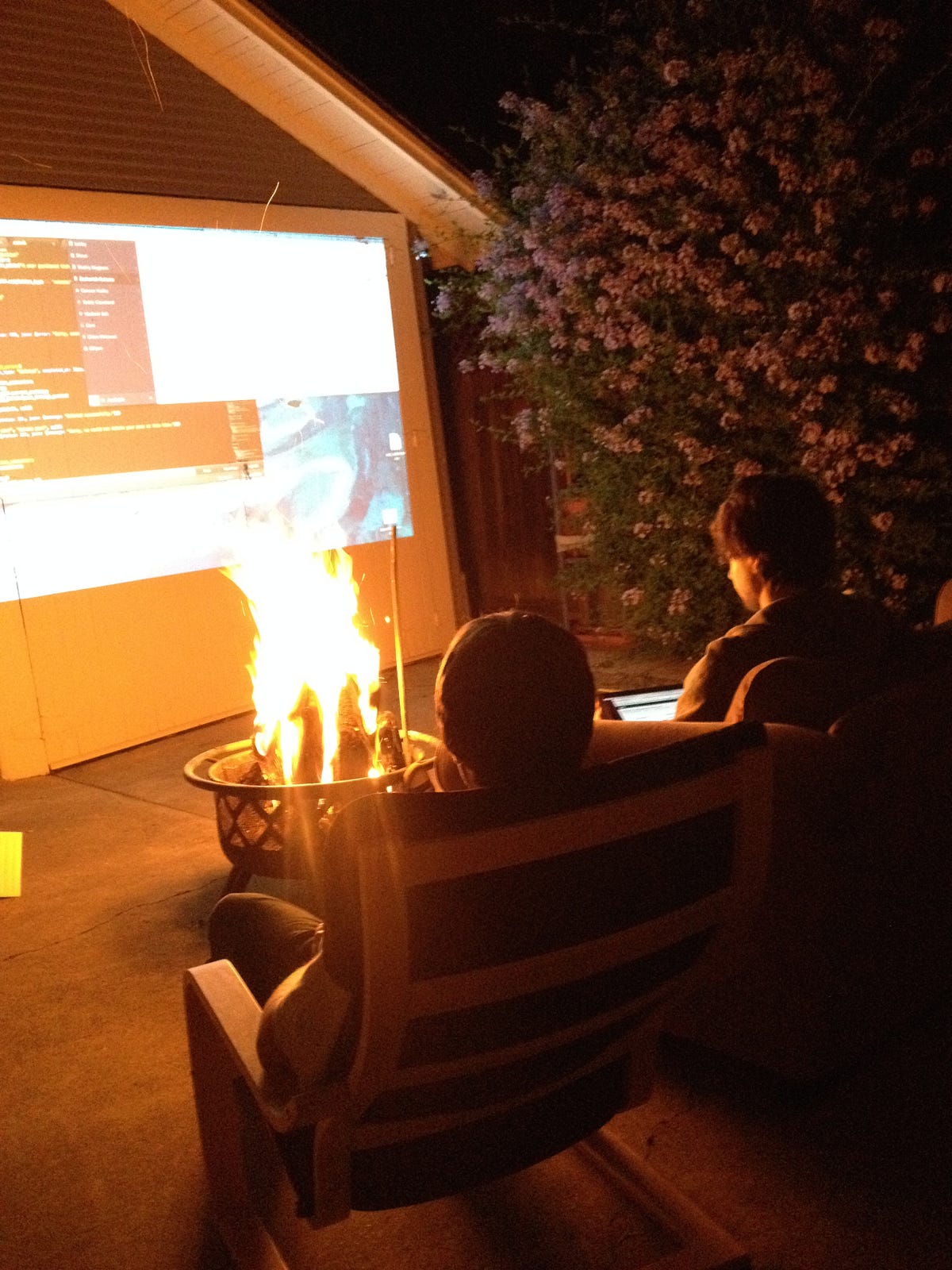
YC is a hike or bonfires with batchmates.
YC is a batchmate sending out a Tuesday dinner invite every week since YC has concluded.

It is an army, a cult, a family.
Month Post Demo Day:
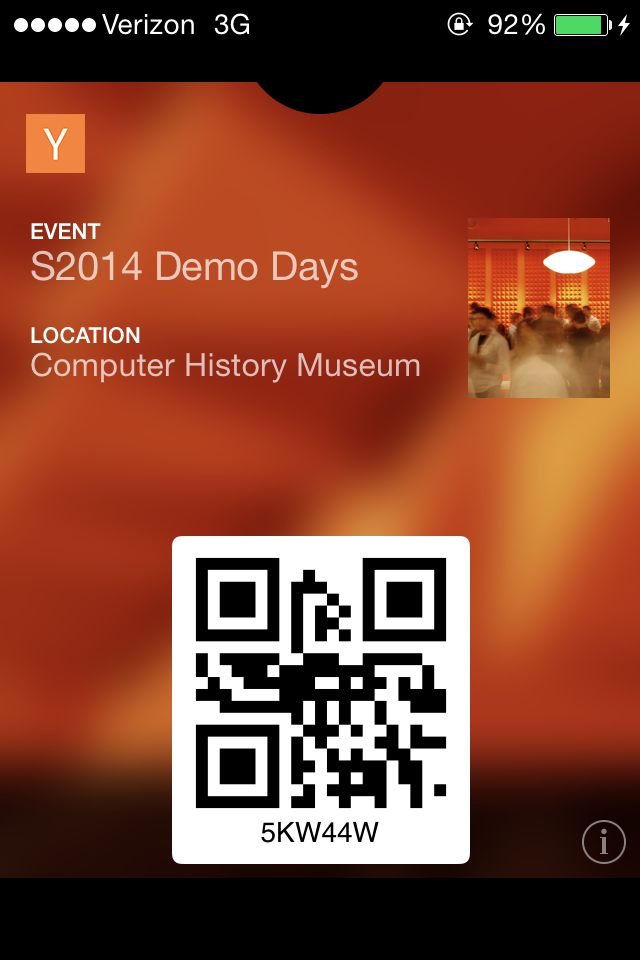
The concluding speakers at the final YC dinner were the partners. They told us two very important things.
- Don’t stop. Don’t stop doing whatever you were doing that made you successful while you were here.
- YC is not over. It never is.

We aren’t sure where things will go from here. Shout may or may not succeed. But I know Henri and I feel fortunate to be a part of YC.

Thanks for reading.